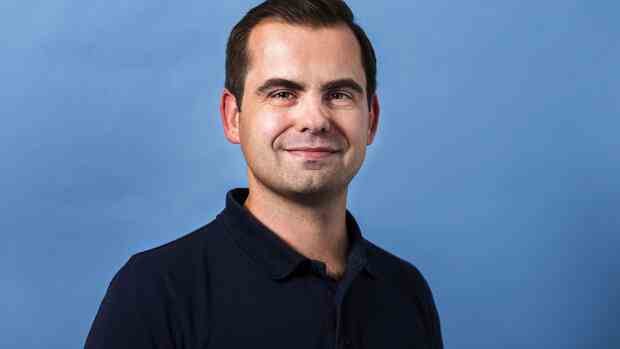Berlin Reports about a new round of financing for the online translator DeepL have been making headlines for a few weeks. The company made it official this Wednesday: The Cologne start-up, which is taking on the offer from the US technology group Google, has collected fresh money. This means that DeepL is valued at more than one billion euros for the first time and, in difficult times, is promoted to the exclusive club of the so-called unicorns.
However, company founder Jaroslaw Kutylowski finds little to gain from the term that is coveted in the scene: “I find it difficult to associate stable growth with this term,” he says in an interview with the Handelsblatt.
DeepL’s funding round comes at a time when many startups are struggling to raise fresh money. While investors mainly looked at the growth figures during the corona pandemic, they are now paying more attention to the business models and whether they can ultimately be profitable.
Top jobs of the day
Find the best jobs now and
be notified by email.
DeepL can score with the latter. “On the investor side, the fact that we have always been profitable certainly played a major role. It’s back in fashion, especially these days,” says the Polish-born computer scientist, who grew up bilingual himself.
>> Read about it here: Start-ups 2023: Hardly any IPOs, falling company valuations, more insolvencies
He does not want to reveal any figures, neither about the amount of the financing round nor the money collected since the company was founded, nor about sales and profits. “We keep it closed,” he says. This makes it difficult to compare his statements.
DeepL emerged from the online dictionary Linguee in 2017 and now offers 29 languages. Revenue is primarily provided by paid offers that include more functions and data protection than the free version. These are primarily aimed at companies and professional individual users.
Artificial intelligence is playing an increasingly important role in translation
The financing round, in which the US venture capitalists IVP and Bessemer as well as Atomico from Europe participated, also reflects the triumph of artificial intelligence (AI) in the world of work. DeepL offers particularly precise translations with the help of AI. According to the company, the offer is now being made by Used by thousands of companies worldwide across a variety of industries.
The market research institute Gartner predicts enormous upheavals due to the increased use of AI in the translation industry: work processes would change, but above all the prices that translators could charge for their work should fall. In addition, human experts are mainly used to fine-tune texts that have previously been processed by programs such as DeepL.
>> Read about it here: Artificial intelligence replaces creative jobs – academics have to rethink
Kutylowski wants to actively help shape the changes in the industry with the money that has now been collected. The millions should flow into research, but also into new products and countries. For example, DeepL has also been active in Japan since last year. “We see ourselves as a research company and are at the forefront of what can be done with artificial intelligence and language,” says Kutylowski.
The Cologne start-up competes with Google, for example.
(Photo: DeepL)
This is confirmed by Reinhard Karger, spokesman for the German Research Center for Artificial Intelligence. “DeepL cooperates with language technology research, combines the best that the current state of knowledge offers and is therefore not an intellectual isolated solution.”
Translator from DeepL focuses on ease of use
However, the competition in the billion dollar market is fierce. In addition to Google, these include the Chinese provider Baidu and Lilt from the USA as well as Systran from France, Tilde from Lithuania and Tarjama from Abu Dhabi.
However, Karger believes that DeepL, with its focus, has a decisive advantage, at least compared to Google. “Automatic text translation is more than just another service that others offer just to sell ads,” he says. Kutylowski focuses on ease of use in his service: “We build our technology in a way that is very easy to use.”
The founder associates advantages and disadvantages with Germany as a business location: “There are many top talents in Germany and very well trained people. Despite this, Germany still cannot match the amount of experience that Silicon Valley has in terms of fast-growing start-ups.”
More: Seven technologies to solve current problems
